Lecture 21: Stacks and Balanced Expressions
Overview
- Project 3: Stable Matchings
- Balanced Expressions
- Queues
Project 3: Stable Matchings
Stable Marriage Problem
Setup:
- 2 sets of agents
- residents
- hospitals
- want to match residents to hospitals
- each resident assigned to one hospital
- each hospital assigned one resident
- agents have preferences
- residents rank hospitals
- hospitals rank residents
How should we match hospitals and residents?
Background
Problem formalized by Gale & Shapley, 1962
- Defined a criterion for a “good” matching: stability
- Described an algorithm to find a stable matching
Central problem in economics
- 1,000’s of academic articles
- including several by me
- 4+ books devoted solely to this problem
- 2012 Nobel Prize in Economics (Shapley & Roth)
And recently: Marriage Pact
Input
- A set $H$ of hospitals
- A set $R$ of residents
- For each hospital $h$:
- a ranked list of all residents
- For each resident $r$
- a ranked list of all hospitals
Example:
hospitals
A B
residents
a b
preferences
a: A B
b: A B
A: a b
B: a b
Output
hospitals
A B
residents
a b
preferences
a: A B
b: A B
A: a b
B: a b
Goal: find a matching where no hospital-resident pair has an incentive to deviate
Blocking Pairs
hospitals
A B
residents
a b
preferences
a: A B
b: A B
A: a b
B: a b
Consider matching (a, B), (b, A)
The pair (a, A) is a blocking pair.
Stability
A matching without blocking pairs is stable.
hospitals
A B
residents
a b
preferences
a: A B
b: A B
A: a b
B: a b
Consider matching (a, A), (b, B)
An Algorithm (McVitie & Wilson)
- Residents arrive one at a time
- When a resident arrives, proposes to first choice hospital
- When a hospital receives a proposal:
- if no other proposals yet, provisially accept
- otherwise compare proposals
- provisionally accept preferred proposal
- refuse less preferred proposal
- When a resident receives refusal
- propose to next choice hospital
Continue until all residents arrive
Algorithm Example
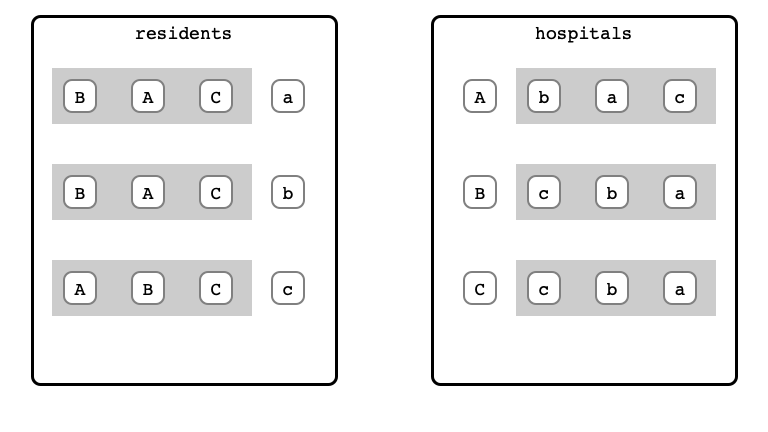
M & W Step 1: a proposal
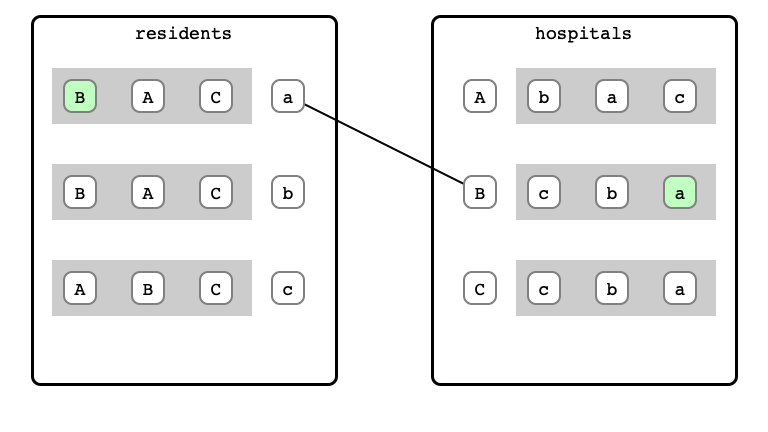
M & W Step 2: b proposal
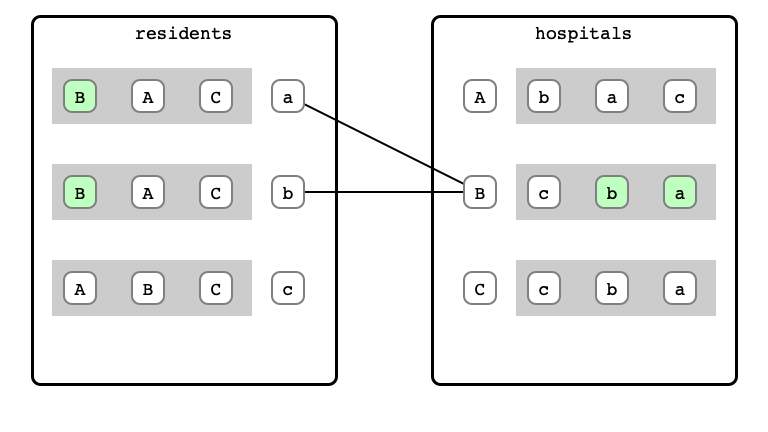
M & W Step 3: B refusal
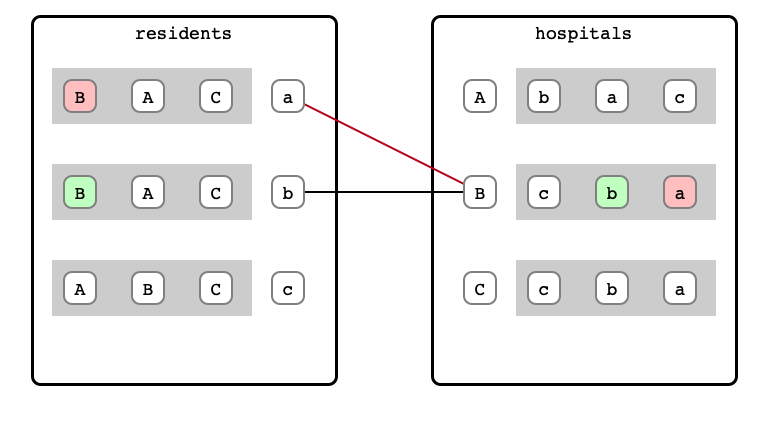
M & W Step 4: a proposal
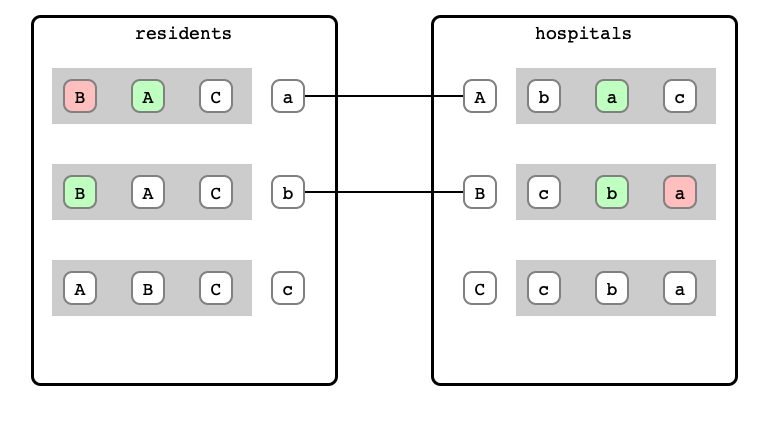
M & W Step 5: c proposal
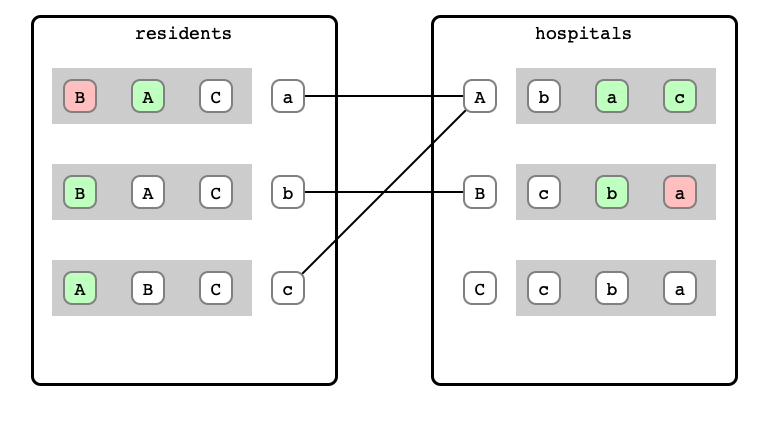
M & W Step 6: A refusal
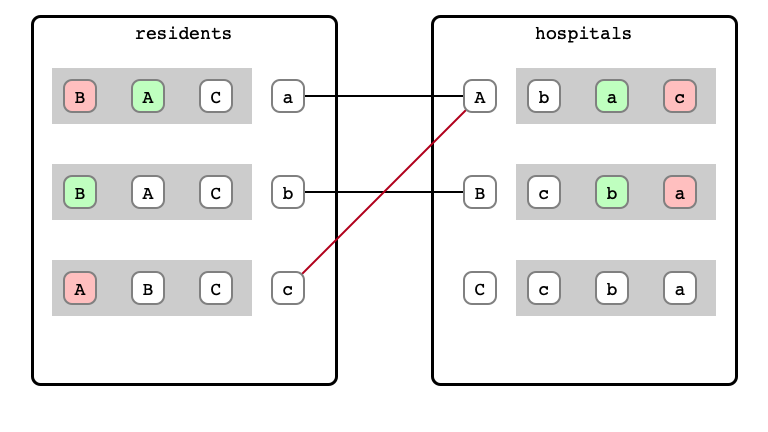
M & W Step 7: c proposal
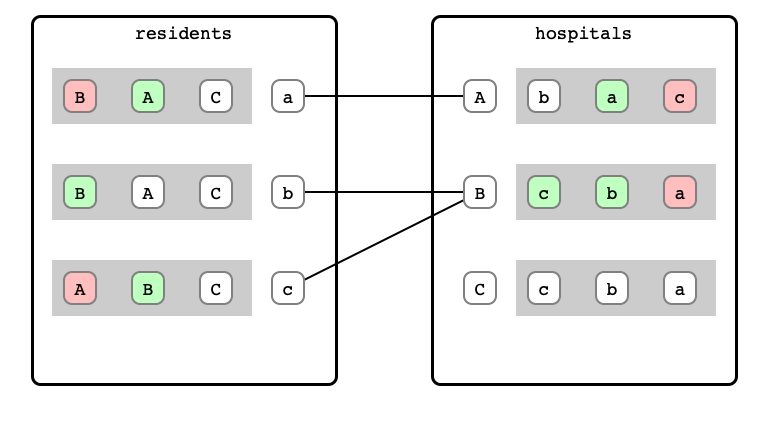
M & W Step 8: B refusal
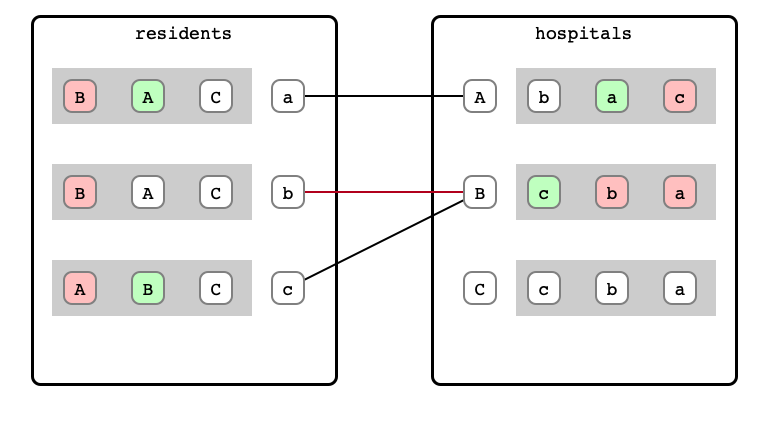
M & W Step 9: b proposal
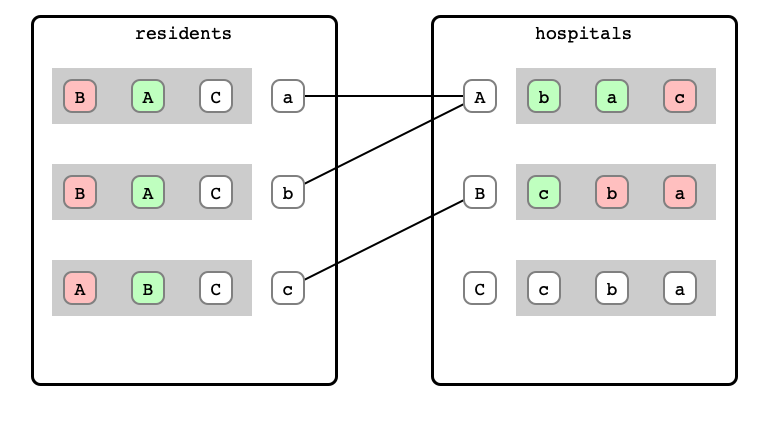
M & W Step 10: A refusal
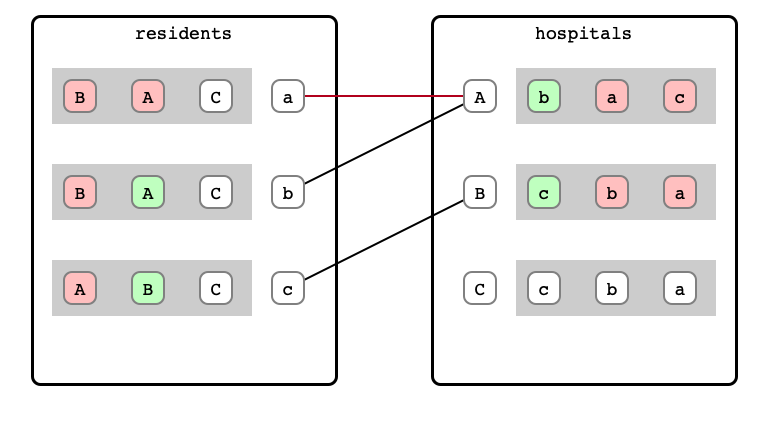
M & W Step 11: a proposal
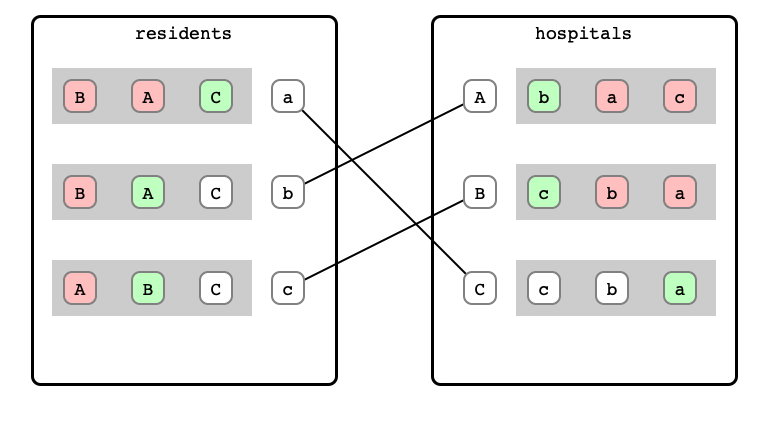
And Done!

Project 3
Implement McVitie & Wilson algorithm to find stable matchings!
- Provided with examples/tests
Balanced Expressions
Brackets
Java uses a lot of brackets:
- curly braces
{ ... } - parentheses
( ... ) - square brackets
[ ... ]
If expression are properly bracketed, Java compiler complains!
An Abstraction
This expression
public class HelloWorld {
public static void main(String[] args)} {
System.out.println("Hello, World!");
}
}
but with just the brackets:
{ ( [ ] ) } { ( ) } }
Question
When is an expression properly bracketed?
- What makes
{ ( [ ] ) } { ( ) } }okay? - What makes
{ ( [ ] ) } } { ( ) } }not?
Balanced Expressions
A bracketed expression is balanced if
- every opening bracket has a corresponding closing bracket
- closing bracket appears after opening bracket
- one-to-one correspondence between opening and closing
- opening-closing pairs are nested
- if opening bracket appears between opening-closing pair, then corresponding closing bracket does too
{ { { } } { } { } }
{ { } } } { }
How To Check For Balance?
{ { { } } { } { } }
Balance Checking with a Stack
- Scan expression from left to right
- Whenever an open bracket is encountered, push it to the stack
- When a closing bracket is encountered:
- check if it matches top of stack
- if so, pop the stack
- if not, or stack is empty, expression is not balanced!
- If stack is not empty at end of expression, expression is not balanced!
Checking for Balance
{ { { } } { } { } }